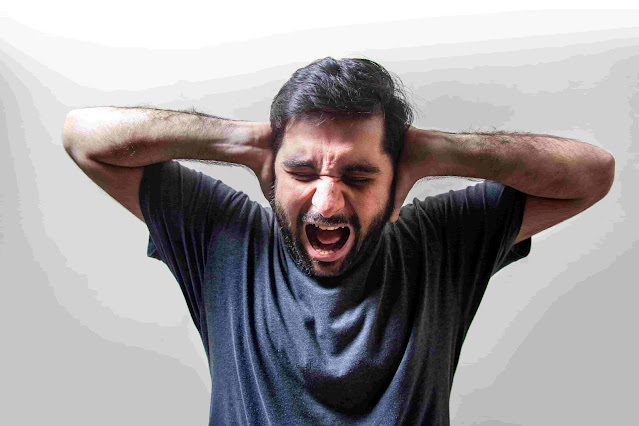The headache is a throbbing, pounding sensation in the temples and forehead. It feels like a tight band is wrapped around the head, causing intense pressure and discomfort. The headache is accompanied by nausea and sensitivity to light and sound. It is difficult to concentrate and perform daily tasks due to the severity of the pain.
Headache Types:
- Tension headache: This type of headache is caused by tightness and contraction of the muscles in the neck, scalp, and face. It is often described as a dull, pressing, or tight sensation on both sides of the head.
- Migraine headache: This type of headache is characterized by severe, throbbing pain that is often accompanied by nausea, vomiting, and sensitivity to light and sound. Migraine headaches can last for several hours or even days.
- Cluster headache: This type of headache is characterized by a severe, intense, burning, or piercing pain that typically occurs on one side of the head. Cluster headaches are often accompanied by symptoms such as watering or redness in the eye, nasal congestion, and swelling of the face.
- Sinus headache: This type of headache is caused by inflammation of the sinuses, which are the air-filled cavities in the face and forehead. Sinus headaches are often accompanied by symptoms such as a stuffy or runny nose, facial pressure or tenderness, and a feeling of fullness in the ears.
- Hormone headache: This type of headache is caused by changes in hormone levels, particularly in women during menstrual periods, pregnancy, and menopause. Hormone headaches are often accompanied by symptoms such as mood changes, irritability, and food cravings.
- Caffeine headache: This type of headache is caused by caffeine withdrawal or overconsumption. Caffeine headaches are often accompanied by symptoms such as irritability, fatigue, and difficulty concentrating.
- Hangover headache: This type of headache is caused by alcohol consumption. Hangover headaches are often accompanied by symptoms such as nausea, vomiting, and sensitivity to light and sound.
- Rebound headache: This type of headache is caused by overuse of pain medication. Rebound headaches are often accompanied by symptoms such as a constant, dull ache and an inability to stop taking pain medication.
Headache Symptoms:
- Pain in the head or neck
- Sensitivity to light or sound
- Nausea or vomiting
- Dizziness or vertigo
- Blurred vision
- Difficulty concentrating or thinking clearly
- Loss of appetite
- Irritability or mood changes
- Tension or tightness in the head or neck muscles
- Neck stiffness or pain
- Fatigue or low energy levels
- Sleep disturbances or difficulty falling asleep
5 effective medicines for treating headaches,based on your types of headache
Headache causes:
There are many different causes of headaches, and it can be difficult to pinpoint the exact cause of a headache without proper medical evaluation. However, some common causes of headaches include:
- Dehydration: Not getting enough fluids can lead to headaches, particularly if you have been sweating heavily or have been sick with a fever.
- Eye strain: Spending a long time looking at a computer screen or other digital device can cause headaches due to eye strain.
- Stress: Stress and tension can cause headaches, often in the form of a tension headache.
- Neck and jaw problems: Tension in the neck and jaw muscles can cause headaches, particularly if you clench your jaw or grind your teeth.
- Hormonal changes: Changes in hormone levels, such as those that occur during menstruation or menopause, can cause headaches.
- Food and drink: Certain foods and drinks, such as alcohol and caffeine, can trigger headaches in some people.
- Sleep problems: Not getting enough sleep or poor-quality sleep can cause headaches.
- It's important to note that these are just some common causes of headaches, and it's always best to see a doctor if you are experiencing persistent or severe headaches. They can help determine the underlying cause and recommend the appropriate treatment.
Headache Treatment:
- Take over-the-counter pain medication such as ibuprofen or acetaminophen.
- Apply a cold or warm compress to the forehead or temples.
- Drink plenty of water to stay hydrated and avoid dehydration, which can sometimes cause headaches.
- Try relaxation techniques such as deep breathing, meditation, or massage to relieve tension and stress.
- Avoid triggers such as alcohol, caffeine, and certain foods that can cause headaches.
- Get regular exercise and maintain a healthy diet to reduce the frequency of headaches.
- If headaches persist or are severe, consult a doctor for further evaluation and treatment.
How do I know if my headache is serious?
If you are experiencing a headache that is severe or persistent, it is always best to speak with a doctor to determine the cause and the appropriate course of treatment. Some headaches can be a sign of a more serious underlying condition, such as a brain tumor or an aneurysm. Additionally, if your headache is accompanied by other symptoms such as a fever, stiff neck, confusion, or vision changes, this may also be a sign of a more serious condition and you should seek medical attention immediately. It is always better to be safe and have a doctor evaluate your symptoms to determine the cause of your headache and provide appropriate treatment.
Conclusion:
Headaches are a common medical condition that can be caused by a variety of factors. These factors can range from physical strain, dehydration, and stress to underlying medical conditions such as sinus infections or migraines. Proper management of headaches involves identifying the underlying cause and treating it accordingly. This can include lifestyle changes, over-the-counter pain medication, or prescribed medication. It is important to consult with a healthcare provider if headaches persist or are severe.






.png)
0 Comments